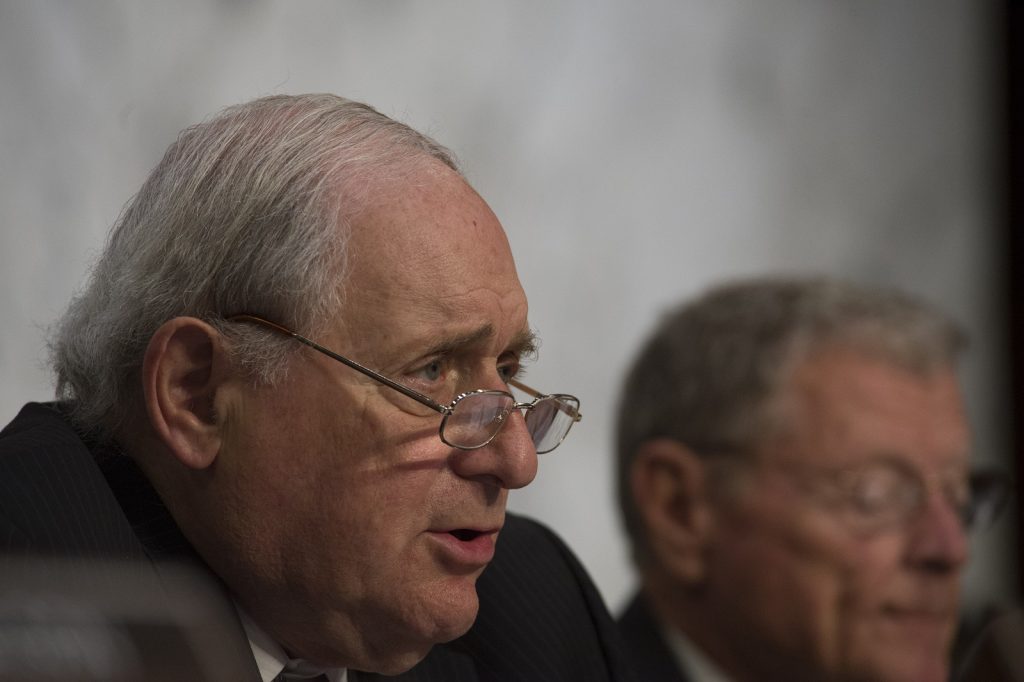Remembering Carl Levin, Michigan’s Titan of the U.S. Senate
Rep. Debbie Dingell and Levin Center Director Jim Townsend celebrate the life and legacy of Michigan’s longest-serving U.S. senator.

On Thursday, former U.S. Sen. Carl Levin died at age 87. To honor his life and legacy, Stephen Henderson revisits a conversation with Levin from March of this year. Then, he discusses the senator’s life and career with Levin’s longtime friend and colleague, Rep. Debbie Dingell.
“Carl’s fingerprints are all over the city of Detroit. He loved the city of Detroit. He never forgot where he was from.” –Rep. Debbie Dingell
Listen: Remembering the storied life and career of Sen. Carl Levin.
Guests
Carl Levin was the longest-serving U.S. senator from the state of Michigan. Levin served as a senator for 36 years, from 1979 to 2015. During his tenure, he sponsored legislation supporting a number of issues related to education, health care and the environment. In a previous interview with Stephen Henderson, Levin emphasized the importance of compromise in governing. “You have to learn to work with people who have different views from yours. And if you’re not willing to do that … then you’re not willing to govern,” he said.
Rep. Debbie Dingell is a Democrat representing Michigan’s 12th Congressional District. Dingell and Levin were close friends. The two families, Dingell explains, have been entwined for decades. “The Dingell-Levin friendship goes back almost 100 years now,” she says. “They were public servants. They came from a time when you had a responsibility to give to your community.”
Dingell says Levin was deeply devoted to public service, particularly in Detroit. “Carl’s fingerprints are all over the city of Detroit. He loved the city of Detroit. He never forgot where he was from,” she says. “Carl was the most down-to-earth, humble man … [he] didn’t give up on principles he believed in.”
Jim Townsend is director of the Levin Center at Wayne State University’s law school. He’s also a former member of the Michigan House of Representatives.
“I lost a role model, a mentor, a chairman of the organization … and I lost a friend,” says Townsend. “I tried to channel Carl Levin as much as I could” as a state representative.
“We should be looking at our political leaders and evaluating whether they’re upholding the facts,” he says. “Today it is so urgent to uphold Carl Levin’s legacy.”
Web story written by Molly Ryan
Trusted, accurate, up-to-date.
WDET strives to make our journalism accessible to everyone. As a public media institution, we maintain our journalistic integrity through independent support from readers like you. If you value WDET as your source of news, music and conversation, please make a gift today.
